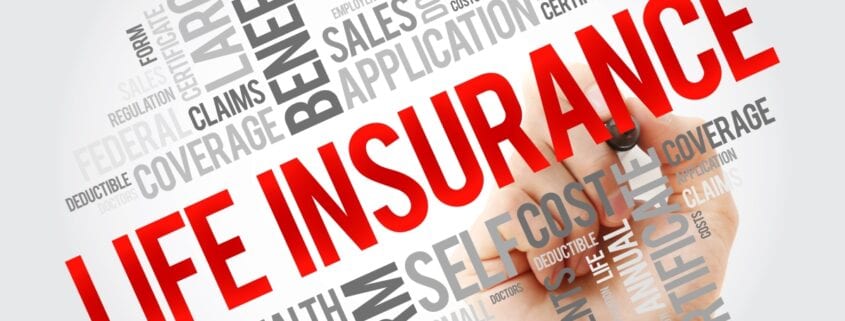Indexed Universal Life Insurance – A Complete Guide

Do You Need Indexed Universal Life Insurance?
When considering permanent life insurance, you might come across something called indexed universal life insurance (IUL). Like traditional Universal life insurance (UL), IUL has a death benefit plus a cash value.
Universal Life Insurance vs. Indexed Universal Life Insurance
There are two types of universal life insurance:
- Universal life insurance (UL)
- Indexed universal life insurance (IUL)
Universal life offers an investment component and death benefit. Basically, UL and IUL policies combine term life insurance with a tax-deferred interest-accumulating savings account. It is used as a way to build wealth while maintaining the death benefit. With UL you have the potential to be insured into retirement and the possibility you will not have to pay premiums for life. Indexed universal life insurance was developed to provide more safety during fluctuations in the stock markets.
What is Indexed Universal Life Insurance?
As opposed to term life insurance, which expires after a set number of years, both UL and IUL are permanent types of life insurance. All permanent life insurance policies have a portion that pays a sum if you die (death benefit) and another portion that can gain cash value over time.
An IUL policy:
- Has a minimum guaranteed interest rate to protect the cash value
- Does not have a fixed interest rate
- Features interest rates based on an index set by the insurer
No Fixed Interest Rate
The index is a set of stocks, bonds or similar types of investments. For example, an index can be the S&P 500, Dow Jones Industrial Average or Nasdaq 100. The insurance provider uses the performance of the interest rate of the index to establish the interest rate for the policy. No direct investment is made in the market.
- If the index value goes up, interest is earned
- If the index value goes down, interest earned is less
Interest Rate is Guaranteed
The interest you earn on an IUL typically includes a guarantee for a maximum as well as a minimum interest rate. The policy can’t earn more than the maximum, or cap. The set minimum interest rate, or floor, is paid even when the index has lower returns.
Adjustable Premium Payments
Premium payments on IUL are adjustable. Although a policy specifies premiums, if the cash value account holds enough money the funds may be used to help pay premiums.
Adjustable Death Benefit
Death benefits of an IUL policy are usually flexible. Lowering the benefit is possible anytime but increasing it could result in a requirement for passing a medical examination.
Access to Cash Value
An IUL policy can be tapped for cash. This can be a great benefit if the cash is needed in an emergency, but:
- If withdrawals are made from a cash value account, it may reduce the death benefit permanently.
- If the policyholder borrows from the IUL cash value, interest will probably be charged.
- If withdrawals from a cash value account are too high, there’s a risk of a lapse in the policy.
IUL/UL Pros
The benefits of IUL include:
Control – The policyholder has some flexibility and control of the death benefit and payments, which can be increased or decreased.
Growth Potential – Because rates are based on the stock market, there’s potential for growth, which may be tax free. Policy holders may be able to increase account values quicker than other types of accounts.
Asset Protection – Thanks to the interest rate guarantee, the policyholder is protected from losing the policy’s entire value if the market plunges.
IUL/UL Cons
The negatives of IUL include:
Complexity – IUL policies can be confusing and complex. Policyholders must do their homework and understand all the options. At the very least, the insurer must be very knowledgeable in this product.
Expense – Index universal life insurance policies are generally more expensive than term life insurance.
Risk – If the stock market does not rise as quickly as expected, the policyholder’s investment could miss his or her goals. Should that cause a lapse in the policy, additional funds might need to be added.
Vigilance – The policyholder must keep an eye on the cash value account. When returns are low, the policyholder may need to add money to the account so it can continue to grow.
Limitations – All universal life insurance depend on market stability to work well. Since investment returns are capped, the account can’t do as well if the stock market if booming, and caps can come down at some point.
Increased Fees – Fees are flexible so they can increase over time, which means less funding for the cash account value.
Is Indexed Universal Life Right for You?
If the goal is to have life insurance throughout your life while building the cash portion, a permanent policy is a good option. Indexed universal life also offers also offers protection if the market falls.
The best time to buy universal life insurance or indexed universal life insurance is in your 20s or 30s. An early-on purchase of a policy allows more opportunity to grow the cash value. It also comes with lower rates and costs more as you get older.
Older buyers, however, may find that an IUL is not as good a fit. Talk with your insurance agent about a safer, more advantageous kind of life insurance for you.
What Are the Alternatives to Indexed Universal Life?
If you’re a little confused about indexed universal life, you are not alone. There are simpler alternatives, however.
Basic Term Life Insurance – For the policyholder who just was a death benefit, term life is a simple, easy to understand option. You need not be concerned with cash values or interest rates.
Whole Life Insurance – Whole life is a much simpler version of indexed universal life. It includes a cash value portion for forced savings, an element that “makes” you put money aside.
Variable Universal Life Insurance – The chief difference between indexed universal life and variable universal life is how the cash value grows. Both are permanent, but variable life insurance allows the cash value to work like a mutual fund.
For more information about when to buy life insurance, this article in the Insurance Journal can help.

 EINSURANCE
EINSURANCE EINSURANCE
EINSURANCE EINSURANCE
EINSURANCE